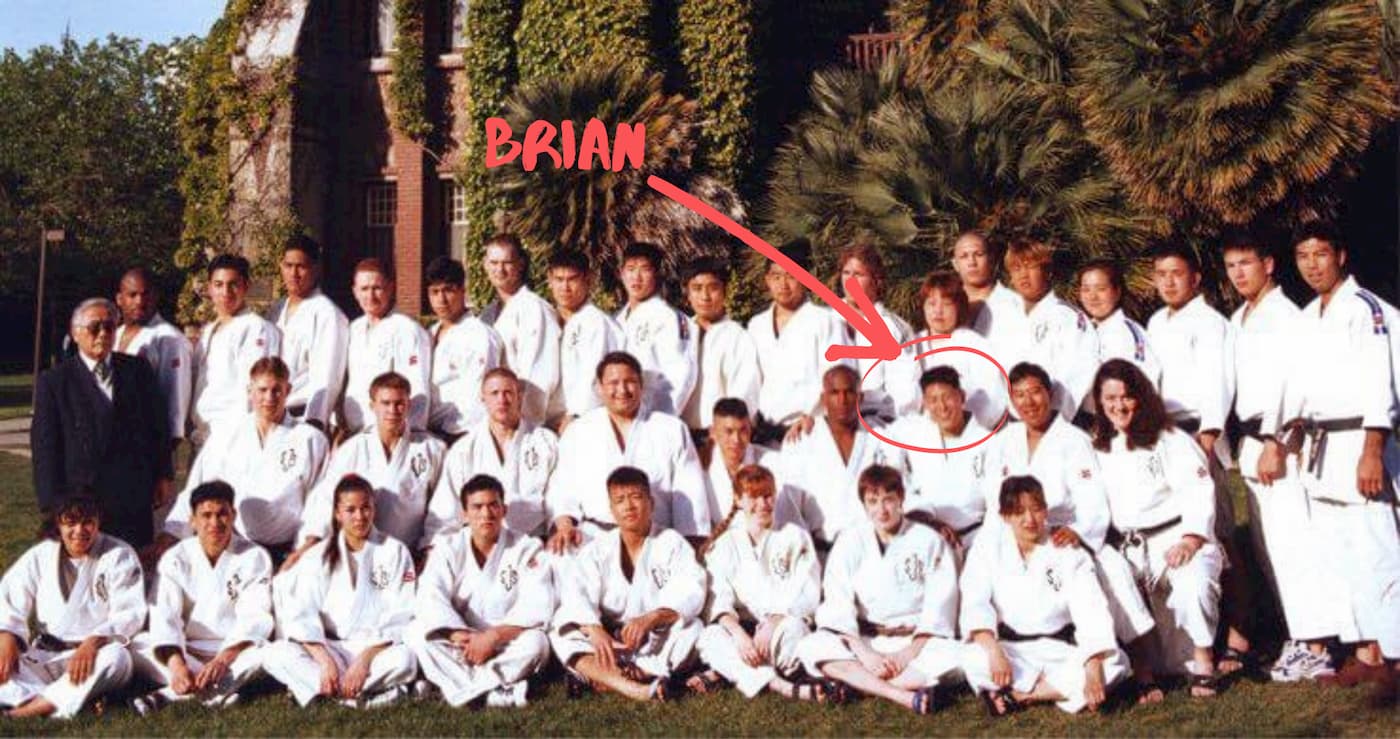Many motivations create the need for self-discipline.
Here are just a few examples of specialties that require a high degree of strictness in order to shine:
- Academics – the motivation to excel in school, and get accepted into a specific program.
- Music – the motivation to develop mastery of an instrument, vocals, or theory.
- Health – the motivation to stick with a fitness or diet regimen, or to overcome an addictive habit.
All of these are great endeavors that require a significant level of self-discipline. If you can relate to one of these motivations to become more disciplined in your life, there are two things to consider.
First, are you striving to become more disciplined by willpower alone? If so, you will be challenged to see sustained change and growth. Discipline is a spiritual quality that requires God’s involvement in your life.
Second, is your desire to develop self-discipline a personal endeavor for self-gain? If so, you are missing the mark of spiritual discipline.
Love is the greatest objective of self-discipline. Without discipline, we cannot love, because love requires it.
Love is the greatest objective of self-discipline. Without discipline, we cannot love, because love requires it.
For many years I’ve pursued greater discipline in my life. At one point, I strove to attain a mastery of martial arts, born out of a desire to excel at the highest level. As a college student, I hit the books hard in an attempt to become a better student. And at various times, I’ve pursued self-discipline to curb my appetite for indulgences like substances or food.

Today, as a husband, father, and friend, I am learning that the highest discipline goal I can set for myself is to help others.
In the book “The Disciplined Life,” Richard Taylor writes:
Far more important than our hidebound little systems are people. Helping people should be the supreme objective of all our self-discipline.
Richard Taylor
Here are five Bible verses about discipline from the book of 1 Peter that changed the way I approach personal growth.
Discipline begins and ends in prayer
Peter is someone I admire in the Bible. He didn’t have it all together.
Often he acted before he thought, and on more than one occasion, he ended up putting his foot in his mouth (Matthew 16:23). He would overestimate his ability and fail gloriously (Matthew 26:33-35).
In all of this, what I admire about Peter was his effort to risk failure to do something great.
As I look at his life through the gospels and the letters he wrote in the Bible, he inspires me because he grew in his courage, convictions, and love arguably more than anyone in the New Testament.
When Peter was older and wiser in life, he wrote his eponymous letter 1 Peter, which teaches us a great deal about discipline.
The end of all things is near; therefore be serious and discipline yourselves for the sake of your prayers. [8] Above all, maintain constant love for one another, for love covers a multitude of sins.
1 Peter 4:7-8 NRSV
Peter teaches us that it takes serious effort and discipline to pray. When you pray with discipline, you’ll be able to deepen and consistently love, rather than erratically.
As a father of young kids, I see this truth in my life. When I don’t practice the discipline to pray through my guilt, fears, insecurities, and anxieties, I become preoccupied with them.
And when I’m emotionally preoccupied, I’m not consistent in my love for my wife, kids, or friends. I have moments of great attentiveness and love, but it is not to the degree of consistency that this scripture describes.
Surprisingly, as I’ve begun to see growth in my spiritual discipline, I’ve seen a parallel growth in my ability to care for more people that I’ve previously thought was impossible.
Pause and reflect
- Do you practice discipline in your prayer life?
- How constant is your love?
- If your love for others is not constant, what do you attribute the inconsistency to?
Love requires service
“Be hospitable to one another without complaining. [10] Like good stewards of the manifold grace of God, serve one another with whatever gift each of you has received.
[11] Whoever speaks must do so as one speaking the very words of God; whoever serves must do so with the strength that God supplies, so that God may be glorified in all things through Jesus Christ. To him belong the glory and the power forever and ever. Amen.” 1 Peter 4:9-11 NRSV
Love requires service. When we don’t have the discipline of prayer, we make efforts to love relying solely on our human power. This results in two things – bitter complaining and inconsistent love.
I regularly find myself blaming and complaining that individuals are too difficult to love. On top of that, my love is inconsistent and unreliable.
I see this most clearly at home. I have my moments when I’m fully engaged and involved with my wife and kids. Other times, I’m consumed by my phone while my kids clamor for my attention. As a result, they often resort to doing something drastic to get me to snap out of my digital daze.
To serve in love, Peter teaches us that this requires the strength that God supplies. The simple practicals of turning to prayer in humility and obeying scriptures in the moments of difficulty will do more to strengthen you than you can imagine.
Pause and reflect
- Do you find yourself complaining about others that they are too difficult to love?
- In what ways are you challenged with serving others who have been put in your life to love?
- How can you change to rely on the strength God supplies to serve and love without getting fatigued?
Develop self-discipline by embracing humility
The thought of discipline and the idea of having mastery over your body, mind, and heart is desirable. But where does one begin to achieve it?
You don’t learn how to develop discipline magically. Peter teaches us that the discipline of prayer begins with humility.
“…God opposes the proud, but gives grace to the humble.” [6] Humble yourselves therefore under the mighty hand of God, so that he may exalt you in due time. [7] Cast all your anxiety on him, because he cares for you. [8] Discipline yourselves, keep alert.”
1 Peter 5:5-8 NRSV
As we learned earlier, Peter teaches us that prayer requires discipline. This discipline to pray also starts with humility, acknowledging various emotions such as fear, insecurity, and guilt that cause us great anxiety.
It is not enough to acknowledge these anxieties, but we must be willing to “cast” these off of us and onto God in prayer. This, believe it or not, requires great discipline.
One of the fond memories I had as a kid was fishing with my dad. Typically at some point on our fishing trip, we would hit a slow moment in the day when the fish weren’t biting.

To keep entertained, I would tie the most massive weight I could find on my line to see how far I could cast out my line. The reel would zing as the line would fly through the air and quickly sink as soon as it hit the water. Not only was it entertaining, but it was therapeutic.
This visual illustrates the discipline we must exhibit with our anxieties in prayer. To cast them onto God means to throw them off as far away from you as possible and then allowing those fears, insecurities, and guilt to stay with God rather than reeling them back in.
To leave your anxieties with God requires trust that he’s going to take it from there.

Pause and reflect
- When you pray, do you acknowledge all of the fears, insecurities, and guilt causing anxiety in your life?
- What keeps you from having the humility to be vulnerable with God about what those are?
- In prayer, do you trust God enough to have the discipline to leave your anxieties with him?
The discipline to resist
…Like a roaring lion your adversary the devil prowls around, looking for someone to devour. [9] Resist him, steadfast in your faith, for you know that your brothers and sisters in all the world are undergoing the same kinds of suffering.
1 Peter 5:8-9 NRSV
Satan is an opportunist. He waits for the right moment to attack you in hopes of devouring you.
How does Satan devour? He devours me through my emotions.
When I’m filled with anxiety, I get devoured by my feelings. I’m rendered defenseless to resist giving in to hysterical fears, indulgent emotions, and procrastination when I don’t practice the discipline of praying through my anxieties.
I’ve had entire days where my anxieties have taken me out. When I’m there, I’m emotionally unavailable to my family, in my head lost in my thoughts, and turning to procrastination by doing something unproductive in a feeble attempt to escape my anxieties.
The ironic thing is I’m exhausted having wasted hours being anxious and doing nothing.
Satan has gotten the better of me more often than I’d like to admit through the undisciplined emotionalism of not taking my anxieties to God in prayer and turning to Bible verses about self-discipline to keep my mind focused.
Pause and reflect
- What are the emotions of anxiety that have devoured you?
- How can you be more disciplined in prayer to prevent your emotions from uprooting your day and throwing you into disarray?
Discipline roots you in God
And after you have suffered for a little while, the God of all grace, who has called you to his eternal glory in Christ, will himself restore, support, strengthen, and establish you. [11] To him be the power forever and ever. Amen.
1 Peter 5:10-11 NRSV
Peter teaches us that when we have the discipline to pray through our anxieties and cast them off, leaving them with God, we will have the ability to resist the temptation of being devoured by our emotions. This discipline to weather our emotional storms is possible because we become rooted in God.
In life, we will face many storms. Our plans get disrupted, we face relationship difficulties, and our health goes up and down. If God anchors us through spiritual discipline, we will maintain the availability needed to serve and love those who have been put in our lives with a steady, constant love.
Pause and reflect
- How emotionally disciplined would your closest friend or confidant say you are?
- When you consider becoming self-disciplined, whose life is improved as a result of it?
- What can you practically do to change your prayer life to become more disciplined?
Explore more:
Brian was a world-class judo competitor from San Jose State University. His experiences as a fighter and as a counselor have given him a unique perspective that he brings to his contributions to Deep Spirituality.
Brian was a world-class judo competitor from San Jose State University. His experiences as a fighter and as a counselor have given him a unique perspective that he brings to his contributions to Deep Spirituality.





